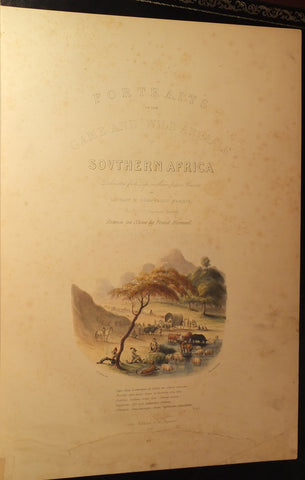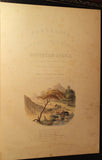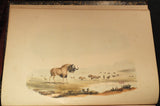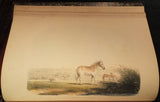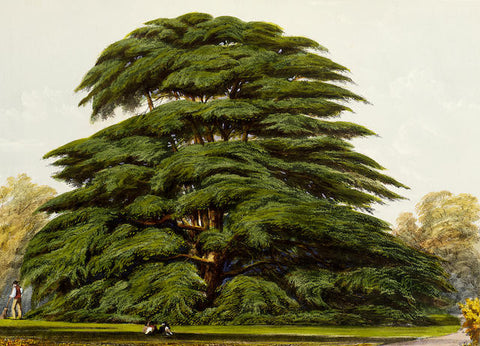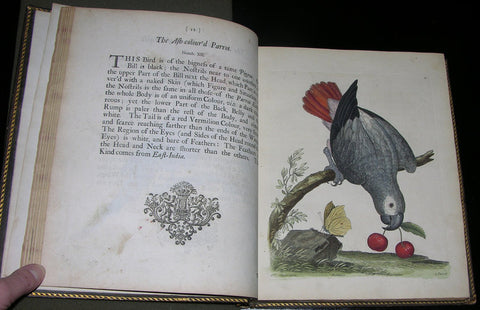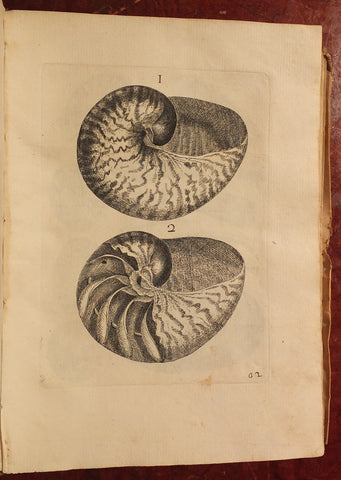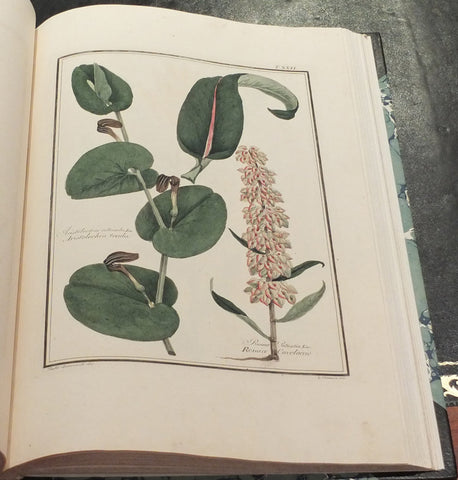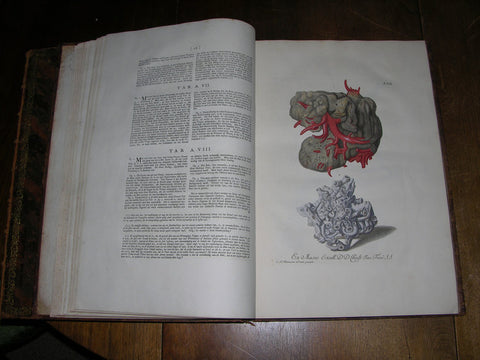Captain W. Cornwallis Harris (1807-1848), Portraits of the Game and Wild Animals of Southern Africa
Captain W. Cornwallis Harris (1807-1848)
Portraits of the Game and Wild Animals of Southern Africa Delineated from Life in their Native Haunts, during a Hunting Expedition from the Cape Colony as fara as the Tropic of Capricorn, in 1836 and 1837, with Sketches of the Field Sports...
London: W. Pickering, 1840.
Folio (22 4/8 x 16 inches). Additional lithographed title-page with hand-coloured vignette (closed tears across the bottom margin, not affecting the image), 30 lithographed plates of native animals by Frank Howard after Harris, with original hand-colour, uncoloured lithographed tail-pieces at the end of each chapter (some plates quite spotted, especially 14 and 21, the last plate torn with portions of the top margin renewed, text very spotted and occasionally browned throughout). Contemporary half black morocco, marbled paper boards, gilt (extremities a little scuffed).
Provenance: with the 19th-century bookplate of Gorham Brooks (1795-1855) on the front free endpaper
First edition, large paper issue, first published in parts between 1840 and 1842. A career Army Officer, in 1836 Harris was invalided to Cape Colony for two years by a medical board. "On the voyage to the Cape, Harris, who from a very early age had been keen on shooting, made the acquaintance of Richard Williamson of the Bombay civil establishment, a noted hunter, and the two arranged an expedition into the African interior in search of big game. After conferring with Dr Andrew Smith, the African naturalist, then just returned from the interior, Harris and his friend started by ox-wagon from Algoa Bay, by way of Somerset and the Orange River, and travelled in a north-easterly direction until they reached the regions of the formidable Matabele (Ndebele) chief Mzilikaze. He proved friendly, and permitted the travellers to return to the Cape by a new and previously closed route by summer of 1837.
"Harris submitted an account of his travels in southern Africa to the Royal Geographical Society, London, and the Geographical Society of Bombay. He published a further account, Wild Sports in South Africa (1841). Under the title ‘Wild sports in South Africa, being a narrative…’, the same work appeared in London in 1841. Harris, a competent artist, also published Portraits of the Game Animals of Southern Africa, Drawn from Life in their Natural Haunts (1840) and Highlands of Ethiopia: a Narrative of a Mission to the Kingdom of Shoa (1844). He also published papers in the Zoological Society's Transactions and Proceedings, the Linnean Society's Proceedings, and elsewhere (H. M. Chichester, rev. James Falkner for DNB).
From the library of Gorham Brooks, whose family had lived for generations in Massachusetts. He was described as a "man elegant in person and manners, keenly intellectual, a great reader, extensively informed, of remarkable powers in conversation, and sparkling wit. He was social, though not in a general way, being by temperament reserved. A satirical vein ran through his composition. By disposition and association he was averse to public life, and, though once sent as representative from Medford to the General Court of Massachusetts, he took no active part in public affairs. Being a democrat and conservative, he was on the unpopular side in Massachusetts politics. His long residence in a slave State [Maryland], and his connection through marriage and otherwise with New Orleans, prevented his feeling unfriendly towards the institution of slavery, and a lack of passion in his nature prevented his taking an active part in the great debate which was agitating the country. His interests were literary and practical, not speculative in any field. He was versed in history; in agriculture he was an adept. But for philosophy, political, social, or moral, he had no taste. In religion he was conventional, taking no interest in theological or ecclesiastical matters, and showing no difference in his treatment of men of various faiths.This is but a meagre sketch of the external relations of one who was no ordinary man. But the external relations are all that concern us here. As a psychological study Mr. Brooks was a very interesting man, but the pursuit of this branch of inquiry would carry both writer and reader too far out of the way" (Memorial Biographies of the New England Historic Genealogical Society, Volume II, 1853-1855, page 469).
We Also Recommend

